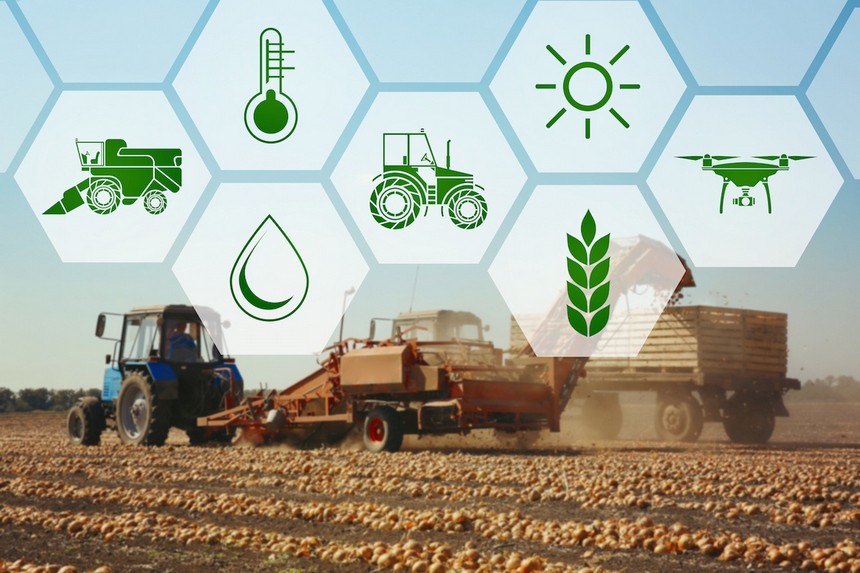Transforming Agriculture: Technology’s Role in Global Food Security

On the one hand, a rapidly growing world is demanding so much food security than ever. How then can billions of the world be fed without exhausting the available resources? That is where modern agricultural technology comes in, promising to transform traditional farming methods and pave the way toward sustainable production. With precision farming and biotechnology, these innovations will transform the future of agriculture while giving solutions to people in feeding the world securely.
Also Read:
Mwenda Thuranira’s Heartfelt Thanks to Investor Who Believed When Others Walked Away
Understanding Food Security
Food security does that thing for everyone by ensuring that people do not starve and that people do not lack any food to ensure a healthy and active life. It is more challenging to achieve this target because it is influenced by population growth, resource limitations, and climate changes. Nowadays, with increasing demands, it is crucial to optimize food production sustainably before modern agricultural technology can be applied.
Farming is a very difficult task that has kept food insecurity as the biggest threat to people’s lives. On the other hand, the change in climate brings out different conditions for growing, starting with unexpected weather behaviors and drought and floods that fully destroy crops. Alternatively, the rate of growing the world’s population demands more food. Unfortunately, traditional farming lacks the capacity to undertake all these efficiently, creating an appeal for innovative solutions that will produce not only at high levels but also sustainably.
Role of Technology in Modern Agriculture
So, where does technology fit into agriculture? The role of technology in modern farming is a whole package that deals with efficiency, sustainability, and productivity. Advanced machinery, data analysis, and automation help farmers maximize yields without unnecessary waste. Technologies being applied to agriculture make it smarter, more responsive, and more resilient to changing environmental conditions.
Precision Agriculture
A Precision Agriculture is amongst the most innovative farming ideas in the twenty first century. GPS, big data and IoT gadgets are used in a way to offer the farmer the high level of interpretations about the lands and/or crops he possesses. Just imagine having a digital map of your fields, showing the place where nutrients must be applied or where water is in short supply. That can help farmers avoid wastage and improve yield by applying resources precisely where they are needed. This approach not only saves money but also conserves resources, thereby helping maintain the rather delicate balance of the ecosystem.
Genetic modification and biotechnology
The new gainer in farming is biotechnology, including genetic modification. Genetic engineering means scientists can develop crop varieties that have resistance to pests, drought, and disease. These GM crops can win with weather conditions around them; that is, stable productivity without climate change challenges. For instance, arid drought-resistant corn can find life in those areas, whereas pest-resistant soybeans will require fewer chemical pesticides, which is healthy for the environment and a farmer’s pocket.
Drones and Remote Sensing
Drones and remote sensing enable farmers to see their farm fields in ways never possible before using excellent-resolution cameras. Drones capture aerial images and views of crops, enabling them to identify pest infestations, nutrient deficiencies, or water stress before many problems occur. That allows farmers to make the correct decision at the right time, taking corrective measures right at that moment before things get worse. Even sprays of pesticides or fertilizers can be done by drones that will help in preventing the heavy compaction of the soil and saving machinery, which may hinder plant growth.
Benefits of Modern Agricultural Technology
Modern agricultural technology carries with it many benefits, leading to food security. It increases yield because, through technology, farming becomes more efficient. This means more crops produced per acre can feed more people in a growing population.It also has resource conserving effect such as sparing water, fertilizer and pesticide useage. This kind of approach benefits the environment, and also reduces the cost of making farming a lucrative business.
Use of Modern Agricultural Technology: Food wastage is minimized
Modern agricultural technology has really minimized food wastage. Precision farming and biotechnology help reduce crop damage caused by pests, diseases, and unfavorable weather. Crops that are healthier and more resilient will lessen the opportunities for loss for many more foods to be marketed and consumed.
The use of technology in agriculture has environmental benefits, as well. These include reduced emissions and greenhouse gases, less soil degradation, and water conservation among others, due to efficient application of chemical inputs. For example, precision agriculture applies fertilizers and water only in parts of the field where it is necessary, thus not having runoff and minimizing the effects on other ecosystems nearby. Such practices promote sustainable farming and ensure the preservation of the planet for future generations.



